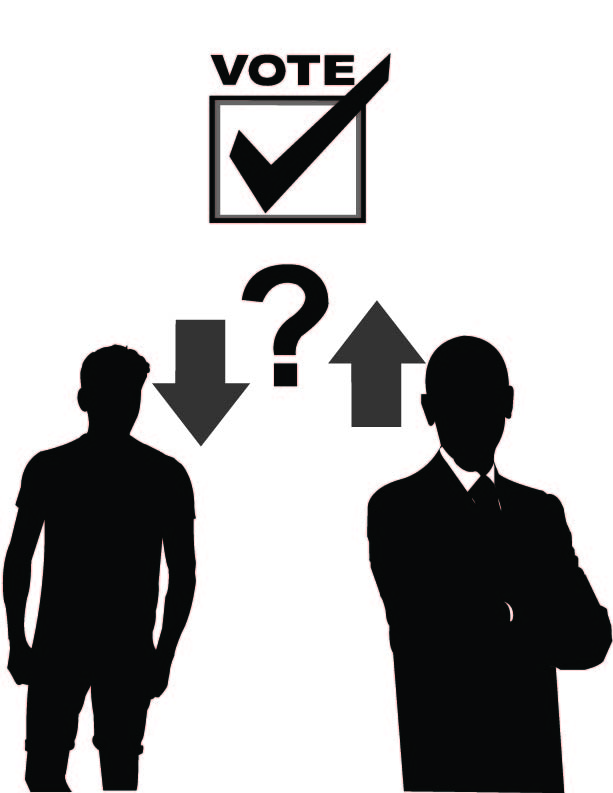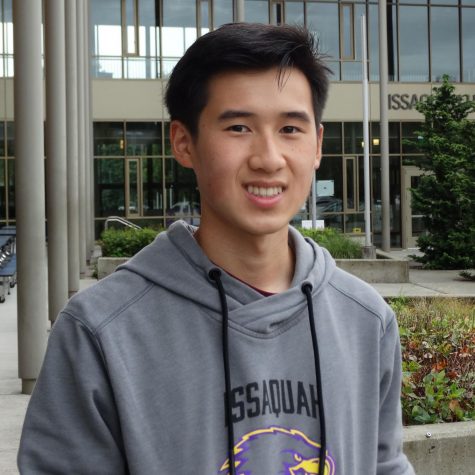Lowering the Voting Age
October 7, 2021
The right to vote has always been an important part of the United States’ representative democracy. It has given citizens the chance to participate in the process of electing new leadership based on what they want changed for our country. The nice thing is that the only requirements to vote are being 18 years old, being a U.S. citizen, and being able to register to vote in your state, but is there an issue that arises from this? A percentage of the population, around 13 million 15 to 17 year olds, is automatically excluded from the voter pool because they do not meet the age requirement. There are a variety of laws that affect teens that they are not allowed to vote on. Perhaps teenagers are not mentally developed yet to make these kinds of decisions or this may be a false stereotype. First, it is important to learn about the history of the voting age in the U.S.
During the late 1960s, the Vietnam war was a controversial issue for Americans. Many of the 18 year olds who were drafted had opinions that went against fighting in the war, but they had no way to fight against the war other than protests. The main argument used was if you are old enough to fight for your country, you should be old enough to vote. This pushed President Richard Nixon and the government to create the 26th amendment which lowered the voting age from 21 years old to 18 years old. This was also done as a way to make up for the underrepresentation of young adults in America at the time. As more time passed, the younger population started to become more and more involved with issues the U.S. faced. Protesting has always been one of the only ways for people ineligible to vote to send a message or their opinion over controversial topics surrounding the U.S. Government. With the increasing popularity of social media, many teenagers have been able to research and educate themselves on issues to the point where they will know more about the issue than most adults. Teenagers have pointed out various laws that affect them, but they have no way to voice their opinion because they cannot vote. This has sparked a new debate on if the voting age should be lowered again. Although there have been many persuasive points made for this proposition, there seem to be an equal number of flaws against it.
First, the opinion that the voting age should be lowered has many strong arguments. The Point News says that “citizens 16 and older deserve a stake in laws which affect them, like educational policies.” Senior Lucas Buchli states, “I did think that the argument that kids have to deal with adult problems, and therefore should be able to vote is a valid point.” Another popular argument made by The New York Times is that “by that age (16-17), adolescents can gather and process information, weigh pros and cons, reason logically with facts and take time before making a decision. Teenagers may sometimes make bad choices, but statistically speaking, they do not make them any more often than adults do.” Junior Lexi Sevart states, “While there are some teens that have the emotional maturity to deal with those responsibilities, there are plenty of teens who still aren’t mature enough. The teenagers who are mature enough are outnumbered by teens who aren’t.” Sevart’s counterclaim is one of the more important arguments against lowering the voting age.
Sophomore Maysa Lacasse adds to the idea that not all teens are mature enough to vote, stating “I think that our brains are still developing and that poor judgement will be a part of that.” There is actual evidence to support this idea listed on ProCon.org, where social scientists Tak Wing Chan and Matthew Clayton have studied that “16 and 17 year olds demonstrate lower interest in politics, have less political knowledge, and lack the experience needed to participate in elections.” Freshman Tyler Morton also supports this idea, saying “I have seen studies that show that the brain isn’t near fully developed when a person is under 18, and I have also seen teenagers with poor judgement.” This is not the only case made for being against a lower voting age. One of the main arguments that is brought up is that teenagers are statistically more likely to have a left-leaning bias. The Washington Post surveyed a sample of people from every generation on their political opinions and found that Gen Z had the highest percentage of participants wanting more government involvement and the lowest percentage of participants who approved of President Donald Trump. This information makes it hard for conservative lawmakers to support the law because passing the lower voting age law could affect election results dramatically. When questioned about how teenager’s left-leaning bias could affect voting results, Sevart stated, “I think it will because a lot of teenagers are very influenced by the media, which isn’t entirely truthful. Many posts are biased and display one side of the story without acknowledging the other side, which gives teenagers skewed information.” Different social media outlets tend to only display one side of an issue in an attempt to persuade their audience.
With all of that said, it seems very unlikely that the voting age will be lowered any time soon. However, with the increased usage of social media among teens and adolescents, it is entirely possible that this law could be passed in the near future. Even with the risk of learning from biased sources, increased access to news and political information through social media will make it easier for the young population of the US to become more knowledgeable about political issues.



